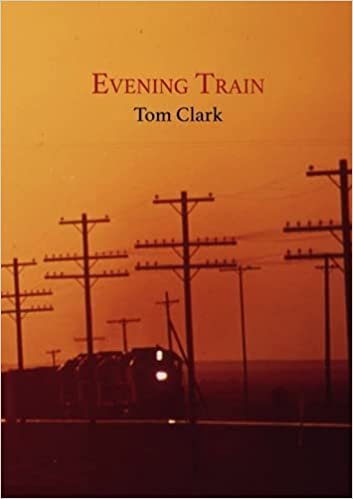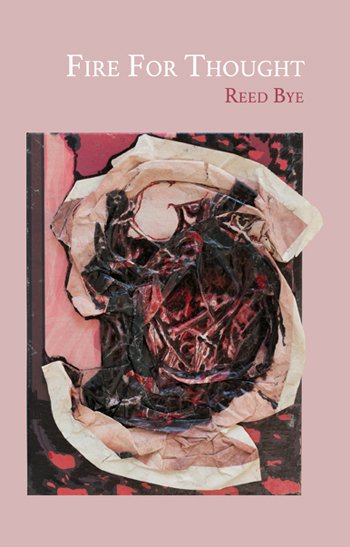In Evening Train we witness people on a bus, a window in the night, greenery, a bird on its perch—and then at the center of this world, something nameless seems to open. It’s hard to say just what happens, other than the words of each poem itself. But that isn’t quite right. It’s as if the words are a way for the poet to inscribe silence. You turn the page, wondering, and it arrives again—something quite beyond what is told. Tom Clark is a master.
—Aram Saroyan
A long time fan of Tom Clark’s poetry, I have turned to his books and blog for years to find inspiration, entertainment, and truth. His is a poetry that I can trust—at once spare and direct, witty and uncompromising, personal and universal, intelligent and deeply felt. I rely on Clark to reveal the nation I live in but often fail to see, complete with its environmental degradation, commercial excess, and kitschy spiritualism. His poems live at the intersection of truth and beauty, weaving the threads of the humdrum and the unbearable with the mystical—or at least with a longing for the mystical. Tom Clark is undoubtedly one of the great living American poets.
— Nin Andrews
Tom Clark is a master of surprise. He is a poet twenty-four hours a day and in possession of a very entertaining mind. He gets the familiar and the strange to dance together, and the dance steps are never the ones you expect. There is pathos in the humor of the situation: ""First it's stuffed bunnies they're giving you. Next it's ice cream and then the nice surprise — you're at the hospital, having an operation."" Clark has the ability to guide words as they ""turn a nowhere into a putative somewhere"" — to take the complications of mental or physical experience and redeem them in lyric poems of notable brevity. Evening Train is smart and companionable and joyously imaginative.
— David Lehman
These poems are radically, almost luridly, American, mapping out landscapes imagined, described, and entered into with stunning visual acuity and incisive intelligence. Yet the language has a spareness, a near egoless authority, giving this book wondrous aesthetic tension. Evening Train confirms what readers of this major American poet have long known: Tom Clark is a contemporary master.
—Terence Winch
Tom Clark was born in Chicago in 1941 and educated at the University of Michigan, Cambridge University and the University of Essex. He has worked variously as an editor (The Paris Review), critic (Los Angeles Times, San Francisco Chronicle) and biographer (lives of Damon Runyon, Jack Kerouac, Charles Olson, Robert Creeley, Edward Dorn), has published novels (Who is Sylvia?, The Exile of Céline, The Spell), memoirs (Jim Carroll, Late Returns: A Memoir of Ted Berrigan) and essays (The Poetry Beat, Problems of Thought: Paradoxical Essays). His many collections of poetry have included Stones, Air, At Malibu, John's Heart, When Things Get Tough on Easy Street, Paradise Resisted, Disordered Ideas, Fractured Karma, Sleepwalker's Fate, Junkets on a Sad Planet: Scenes from the Life of John Keats, Like Real People, Empire of Skin, Light and Shade, The New World, Something in the Air, Feeling for the Ground, At the Fair, Canyonesque, Distance and Truth Game. He lives in Berkeley, California with his wife and partner of forty-six years, Angelica Heinegg.
Book Information:
· Paperback: 102 pages
· Binding: Perfect-Bound
· Publisher: BlazeVOX [books]
· ISBN: 978-1-60964-187-0





